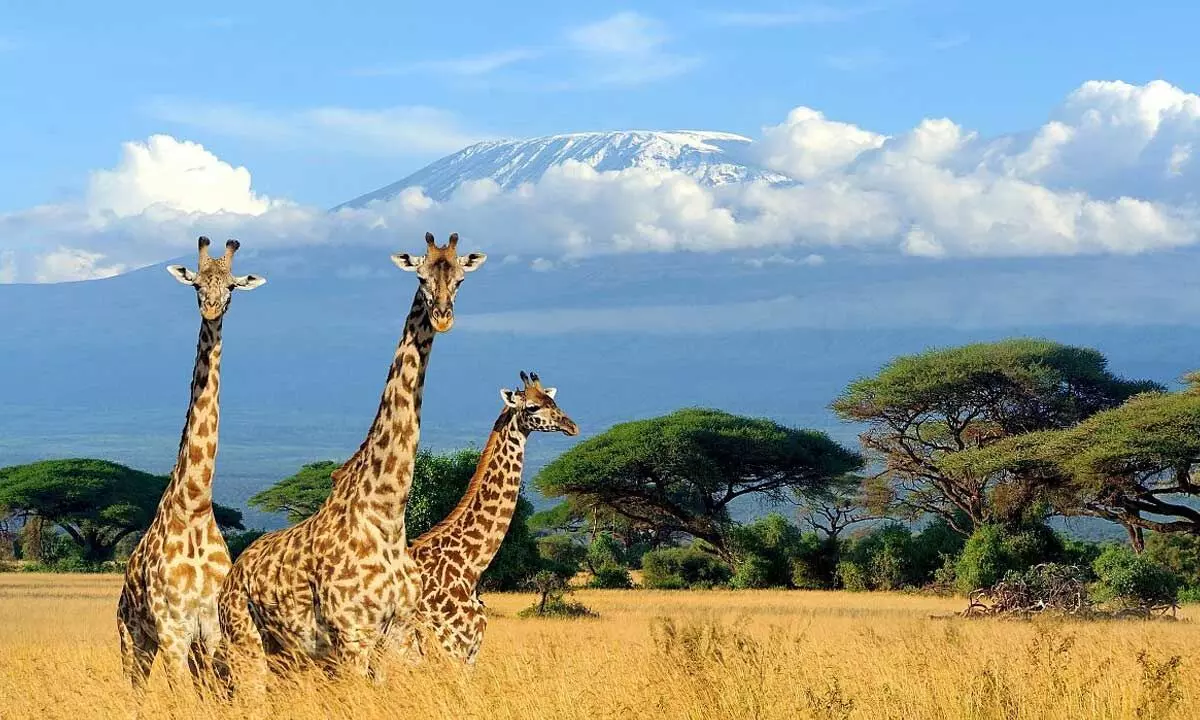Stunning sustainable travel champions to explore

Thailand, Vietnam, Kenya, Srilanka, Oman & Seychelles
As our planet grapples with the challenges of global warming and climate change, sustainable living and eco-friendly practices have become increasingly crucial. Here are 6 destinations that seamlessly blend sustainability with tourism and hospitality.
Thailand
The Land of Smiles and Hospitality is home to countless alluring experiences and attractions that make it an ideal destination for vacations, weddings, honeymoons, and bleisure trips. To blend tourism and sustainability, the country has implemented numerous initiatives including ocean conservation, wildlife rehabilitation and ecological restoration efforts. In the hospitality space, Krabi’s ultra-luxury beachside resort – Phulay Bay, a Ritz-Carlton Reserve stands as an epitome of sustainability. The property utilises reusable bamboo straws and glass bottles instead of plastic tableware. Its in-room amenities are packaged with sustainable materials, such as beeswax. Striving for authenticity, it sources its drinking water from a natural spring in the Naga Mountains and incorporates local produce and ingredients from the Chef’s Garden in its culinary creations. The festive decorations in the resort are also exclusively made of natural and reusable materials, such as coconut shells, driftwood, leaves, and recycled glass bottles. Moreover, Phulay Bay encourages its patrons to contribute towards elephant conservation under the Help the Herd program at the Krabi Elephant House Sanctuary.
Seychelles
The tropical paradise of Seychelles is known for its crystal-clear waters thriving with marine life and unique flora and fauna. To preserve the sanctity of its ecosystem, the country has taken monumental steps such as preserving its flagship tree Coco de Mer, which is known to yield the biggest fruit in the world. They have also made significant efforts to save Dudongs, a rare and vulnerable marine life found at Aldabra Atoll, from extinction. The archipelago has also implemented the BIOPAMA-funded project to set up biosecurity measures preventing invasive alien species from overriding the endemic flora and fauna on Aldabra. Pre-pandemic, the archipelago collaborated with the University of Oxford for the Aldabra Clean-Up Project to remove human-made waste, like plastic litter from the sea that harmed aquatic creatures and the ecosystem. Through these nuanced efforts, Seychelles strives to be an eco-conscious destination that prioritises sustainability and promotes positive tourism experiences.
Oman
Defined by age-old culture and innovation, Oman strives to achieve a net-zero future and preserve its ecosystem by encouraging sustainable practices. In Oman’s Capital, Muscat, the grand five-star resort, Shangri-La Al Barr Jissah, has taken steps to realise this vision. As one of five turtle nesting sites in the country, its beaches welcome hundreds of turtles every year, serving as a safe sanctuary for these creatures to proliferate. Guests are invited to witness hatchings and watch daily Turtle Talks at the hotel’s Eco Centre to initiate the young generation into learning about biodiversity. Protecting the natural habits of critically endangered sea creatures is a priority for the team at the resort and so their Turtle Care Project aims to protect the rare hawksbill and green turtle species through supervision and protection. The resort is actively working towards eliminating the use of single-use plastic and has adopted ways like using refilled bottles, drinking water fountains across the property, and replacing plastic straws with metallic ones.
Vietnam
In recent years, Vietnam has taken many steps to balance the surge in tourism with the need to conserve its natural and cultural resources, including eco-friendly accommodations, energy-efficient transportation, and effective waste management systems. The Anam Mui Ne, a luxury resort located on the pristine Ham Tien beach in Phan Thiet perfectly embodies Vietnam’s hospitality and sustainability efforts. An easy commute from Ho Chi Minh City, the five-star resort with 1.2 hectares of spectacular oceanfront has banned single-use plastics and taken several measures to reduce its carbon footprint. It uses solar power and utilises locally sourced and in-house ingredients to render scrumptious cuisines. The Anam Mui Ne also repurposes laundry water to nurture its gardens and offers biodegradable straws, bags, and bathroom amenities. Even the resort’s key cards are made of wood sourced from sustainably managed forests.
Kenya
Home to stunning landscapes and untamed wildlife, Kenya is one of the best destinations for nature lovers and adventurers. It is home to scores of wildlife sanctuaries like the Amboseli National Park which is known for accommodating thousands of African animals, birds and reptile species, in addition to the Maasai tribe. The best way to immerse into Amboseli is to book a stay at Ol Tukai Lodge, an elegant eco-rated lodge that offers stunning views of glacier-capped Mount Kilimanjaro and the wetlands of the park outside. Being at the heart of nature, the lodge demonstrates its dedication to promoting vegetation and animals by undertaking activities like reforestation. Planting trees in areas that have been deforested contributes to combating climate change to fostering biodiversity. As a result of this Ol Tukai Lodge started a tree planting project with various stakeholders. To celebrate National Tree Planting Day last year, Ol Tukai Lodge collaborated with Kenya Wildlife Service (KWS) to plant over 1,300 trees around the park. This was in line with Kenyan President Ruto's ambitious goal of planting 15 billion trees by 2030.
Sri Lanka
Basking in the diversity of Sri Lanka’s natural attractions, Teardrop Hotels promotes sustainability and community wholeheartedly. Based across seven distinct locations across the country, each property embodies a unique part of Sri Lanka from the serenity of the southwest coast to the frondescence of the south-central region. These hotels are built into heritage buildings and vintage tea bungalows carefully chosen for their character and diligently restored to preserve their original features. Teardrop Hotels also believes in giving back to the local community while also aiming for zero food miles. For this reason, they use vegetables and ingredients cultivated in-house and buy seafood from local fishermen to incorporate in their delicious cuisines. All packaging in the hotel is plastic-free, and refillable water bottles are used to minimise waste.








